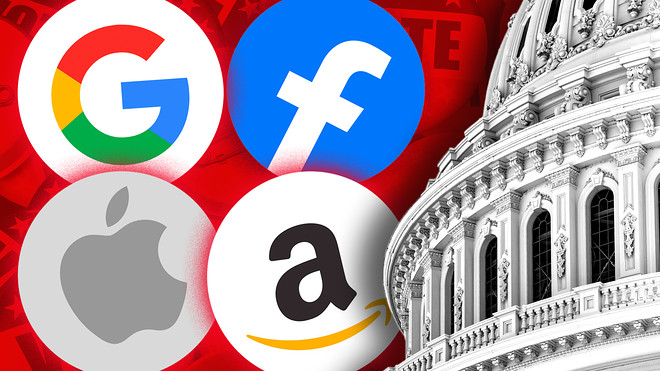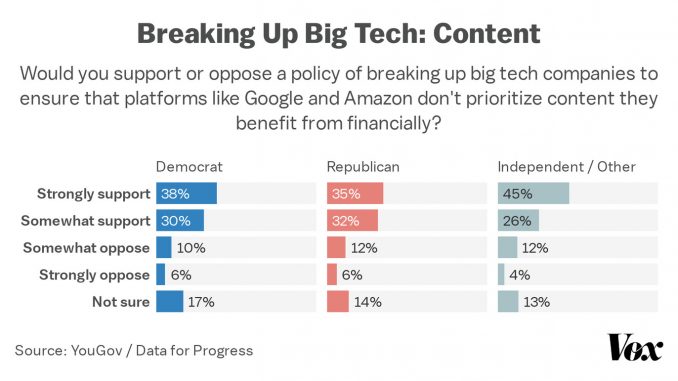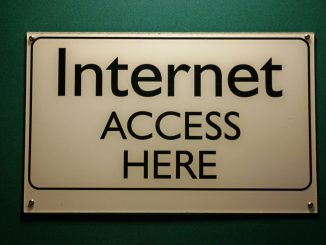
Introduction
With the development of technology and economy in decades, the global productivity has been improved and people’s life has made a huge change that more and more convenient and intelligent than before. Several big technology companies have emerged, for example, Facebook, Amazon, and Apple, while it soon caught the attention of the public and caused their dissatisfaction. In 2018, prominent social media firms in the United States became the subject of a ‘techlash’. Facebook, Google, Amazon, and Twitter’s business operations have been scrutinized by the media and the US government for a variety of serious concerns, including monopolistic power, promoting false news, and abusing customer privacy, among others (Hemphill, 2019, p.240). This article will primarily discuss the meaning of “techalsh”, and how government, civil society organizations, technology companies themselves can solve these concerns respectively.
What is “techlash”
The term “techlash” was coined in 2018 to describe the growing discontent of the public, politicians, and governments with the power of monopoly big tech. It can be demonstrated that modern technology indeed will pose some formidable existential threats in the future possibly. Several concerns or reasons behind that cause public dissatisfaction:

Monopolistic behavior creates unfair competition
Firstly, some big tech companies may abuse their dominant market position by setting rules designed to squeeze out smaller companies and suppress the survival of competitors in the same industry. It is self-evident that most highly successful Internet-based businesses are monopolists. Google, Youtube, Facebook, and Skype are all instances of Internet companies that dominate their respective industries and allow just a small amount of room for a competitive fringe (Srinivasan, 2019, p.2).
It is also a reflection of monopoly on People’s Daily life. For example, WeChat can meet most daily needs in China, e.g. social contact and taxi payment, etc. With the expansion of its business areas and channels of making money, large technology companies can be found that gradually becoming necessities of our life, because it will make a large impact on us when suddenly fails. For instance, Facebook shut down the servers for six hours on 4th, Oct, many services were affected during that time, like the effect of the communication between users, and the suffering of advertisers economics.
Invasion of user privacy
Raw individual data can be of great value to big tech when collected completely and accurately, including a personal profile on blogs, categories of followers, and so on. It can be proved that information of users may be submitted without informing and shared with advertising. Third parties may create and sell a collection of Facebook data. Passwords or whole databases may be stolen from Facebook by intruders (Jones & Soltren, 2005, p.4). Therefore, it can be found that big tech does infringe on our privacy, seeing our personal choices in the background.
Youtube video from “Antitrust expert breaks down Big Tech concerns” by CNBC (2020). https://www.youtube.com/watch?v=IRkQksrfpEo&t=6s.
How to address public concerns behind the “techlash”:
Technology companies: Self-regulation
For big tech themselves, self-regulation is more efficient to implementation, because they have a better understanding of their business and detailed problems. The speed of self-regulated enforcement is much faster than the government, as government supervision requires a long process of making, monitoring, and enforcing the rule, which also means consumers can be protected faster. What’s more, this approach often falls under the category of “corporate social responsibility,” in which companies want to create an image of fairness, justice, and accountability to the public. Google is a particular example of self-regulated companies, like the way of Reducing barriers to data sharing, increasing openness in advertising prices, and making all items available across all channels (Jay, 2016). However, studies show that technology companies are mainly motivated to achieve profits through business growth and global expansion, while less focus on the public value as it contradicts the interest growth. As a result, it is difficult to ensure fairness and justice in the implementation process, and their execution force is not strong. Vogelberg (2018) describes that firms are only focused on desired and profitable outcomes while failing to predict or ignore unpleasant, less profitable consequences, are ill-equipped to self-regulate.
Government
The execution of government supervision is much stronger, and a good external supervision system has been formed. It can implement certain industry rules by establishing a set of laws to protect individual privacy and rights, and imposing corresponding administrative penalties on enterprises. For instance, ACCC worked closely with appropriate Government Departments to draft a required code mandating good-faith talks between designated platforms and news firms, with compulsory arbitration as a backup, at the request of the Government. The law establishing this rule was approved in February, and it has already prompted Google and Facebook to enter into large-scale voluntary commercial agreements with several major and small Australian news organizations. ACMA was tasked by the government with overseeing the creation of this industry-led voluntary agreement, which has already attracted signatories such as Facebook, Google, Twitter, Microsoft, TikTok, and Apple (ACCC, 2018). Nevertheless, some scholars argue that government regulation is too slow and lacks technological innovation, which may waste a lot of time. Moreover, big tech trends to be multinational companies with different legal systems, so the rule is hard to enforce across borders. For example, the General Data Protection Regulation (GDPR), only regulates and protects individuals’ Data privacy in EU countries (Arogyaswamy, 2020, p.836).
Civil society organizations
By actively monitoring technology companies, civil society organizations can call on and mobilize more people, raising citizens’ awareness of privacy protection rights. Additionally, the participation of civil society to promote public opinion support for regulation also will make people pay more attention to it. Besides, the pluralistic strength of the society can be gathered to attract people from all walks of life to discuss, so that supervision becomes more efficient and carry forward the spirit of innovation. Trolless as one of the examples of local civil society organizations, shares information about fake accounts seeking to influence elections on social media sites. The situation was in Moldova in 2019 and Trolless submitted more than 160 bogus accounts and sites to Facebook (Gleicher, 2019). Whereas the supervision of civil society organizations concerns more about advocacy, and the real implementation still depends on the cooperation with the government or technology companies. Ultimately, it should be regulated by-laws or rules of industry organizations.

Conclusion
In summary, technology is a double-edged sword. While satisfying people’s needs for convenience, it also brings some problems such as monopoly, invasion of user privacy, algorithm recommendation, and hate speech, which means the formation of a “techlash” situation. The research reflects that technology also needs more competition and choices in recent years, and if we only rely on a few large enterprises to develop, some troubles and inconveniences will occur. Faced with social media firms’ apparent inability to successfully curb the spread of misinformation and disinformation on the platforms, some other parties, including civil society groups and governments, have stepped in (Wagner et al., 2021, p.9). The strengths and weaknesses of respective supervision are also discussed with some specific examples. Among them, the self-regulation of technology companies can take the shortest time to implement easily and achieve the goal, the government intervention is the most authoritative and owns the strongest executive power, and civil society organizations can get the support of public opinion and carry out the collision of diversified ideas.
References
ACCC. (2021, Aug 19). Platforms’ dominance of apps market needs to be addressed. https://www.accc.gov.au/speech/platforms-dominance-of-apps-market-needs-to-be-addressed
Arogyaswamy, B. (2020). Big tech and societal sustainability: an ethical framework. AI & society.
Friedman, J. (2019, May 16). This is why a self-regulated Google is better for business and for the consumer. Business Insider. https://www.businessinsider.com/self-regulated-google-better-for-business-and-for-the-consumer-2019-3.
Gleicher, N. (2019, Feb 13). Removing Coordinated Inauthentic Behavior From Moldova. About Facebook. https://about.fb.com/news/2019/02/cib-from-moldova/
Hemphill, T. A. (2019). ‘Techlash’, responsible innovation, and the self-regulatory organization. Journal of Responsible Innovation, 6(2), 240-247.
Jones, H., & Soltren, J. H. (2005). Facebook: Threats to privacy. Project MAC: MIT project on mathematics and computing.
Srinivasan, D. (2019). The antitrust case against Facebook: A monopolist’s journey towards pervasive surveillance in spite of consumers’ preference for privacy. Berkeley Bus. LJ, 16- 39.
Vogelberg, K. (2018, Dec 20) Industries must adopt ethics along with technology. Techcrunch. https://techcrunch.com/2018/12/20/industries-must-adopt-ethics-along-with-technology/
Wagner, B., Kübler, J., Kuklis, L., & Ferro, C. (2021). Auditing Big Tech: Combating Disinformation with Reliable Transparency. Tallinn, Estonia: Enabling Digital Rights and Governance & Omidyar Network.

This work is licensed under a Creative Commons Attribution 4.0 International License.


